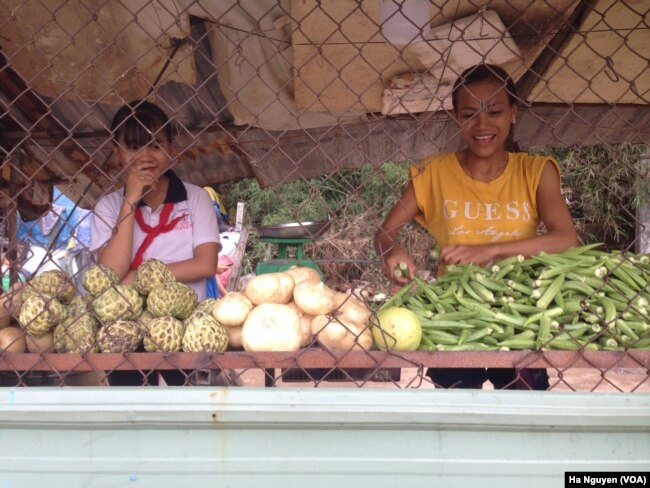The biggest worries among Vietnamese people are food safety, pollution, and corruption, according to a new survey that suggests not enough has been done about these issues since they were raised two years ago, VOA news reports.
Food safety led the list of 13 concerns, with 86 percent of people citing it in the public opinion study done in late April by Indochina Research Vietnam Ltd. Rounding out the top five concerns were education and health care. Pollsters called it surprising and interesting that these findings resembled the five biggest worries that came up in their canvassing of two years earlier, as well.
“This result is similar to the one in 2017, suggesting that problems people are concerned about are still there and not yet resolved,” said Indochina Research, a firm based in Ho Chi Minh City that conducts market research.
While the same problems have persisted over the years, a closer look at the data shows they can be broken down along gender, income, and geographic lines.
Pollution, for example, holds the No. 2 spot across the board. But there is greater anxiety in Hanoi in the north, where it was referenced by 82 percent of residents surveyed, compared with a lower 73 percent of residents in Ho Chi Minh City in the south. Geography explains the difference, given the capital city’s closer proximity to the factory-filled southern provinces of China, which consistently contribute to more toxic air than is inhaled in Ho Chi Minh City.
But breathing bipeds all over the country view dirty air as a growing threat, which international scientists recently linked to dementia. Vietnamese say they will no longer accept that businesses must pollute the environment in order to make money.
“Pollution was once accepted as the inevitable by-product of industrial development and promoted as economic progress,” oped contributor Thu Van wrote in Vietnam News, the state news agency, calling on government officials to take action. “It’s time they treat air pollution as a public health crisis.”
Thu Van thinks the Southeast Asian country should reduce the number of cars on the road, force drivers to use eco-friendly gas, crack down on dirty factories, and move away from coal fired power plants.
Public sentiment in the Indochina Research poll also diverged depending on whether the respondents were male or female. The company said women were more likely than men to express concerns about sexual harassment, health care, and food safety.
That matches findings in a study co-sponsored by the U.S. Agency for International Development in March.
“Women read the fine print,” said Caterina Meloni, USAID Green Invest Asia’s gender and social inclusion adviser. “They are looking for the best ways to deploy their money to protect their family’s health, their land’s longevity, their community’s well-being.”
The Green Invest Asia study found food safety to be more of an issue in Vietnam than in Indonesia, the Philippines, or Singapore.
“Food safety is a top concern for women in Vietnam, where women are willing to pay a premium of up to 30 percent for sustainably-certified organic food, which is higher than in other countries surveyed,” the agency said in a statement.
Everyday Vietnamese worry because they don’t know the sources of their food. Not only has the problem not abated since Indochina Research did its poll in 2017, but some new risks have emerged. In addition to the possibility of food poisoning, whether from wedding parties or sit-down bistros, swine fever has spread around Asia in recent months, including in Vietnam.
Other concerns noted in Indochina Research’s latest gauge of public opinion include clean water access, global warming, journalism quality, unfair competition, and gender discrimination.

